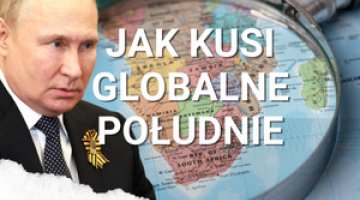Georgia: the foreign agent law, v2.0. A toughening stance ahead of elections?
At the beginning of April, in response to a motion tabled by the ruling Georgian Dream party (GD), Georgia’s parliament launched work on a draft law concerning “the transparency of foreign influence”. The draft states that various entities (including non-governmental organisations and media outlets) which receive more than 20% of their funding from abroad will be required to register as ‘entities which pursue the interests of foreign forces’, or will face criminal responsibility. The initiators of the draft referred to the cases of seven undisclosed influential NGOs which in recent years had failed to report the origin of more than 80% of their spending. The draft has come under criticism from Western states and structures (including the spokesperson for the United States Department of State, NATO’s Secretary General and the EU’s ambassador to Georgia) as well as the Georgian opposition and the NGO sector. They argued that the draft was undemocratic, and could curb freedom of expression and lead to discrimination against representatives of Georgian civil society. On 9 April, to mark the 35th anniversary of the Soviet military’s brutal suppression of an independence rally in Tbilisi, a demonstration against the new legislation was held in the Georgian capital; around 10,000 individuals took part in the event. Further protests have been announced.
Commentary
- A parliamentary committee will begin work on the draft law on 15 April. The proposed legislation should be viewed as inconsistent with the standards and values endorsed by the EU, which Georgia aspires to join. The examples of the Western legislative solutions which the draft’s authors have drawn upon are not fully appropriate; for example, the United States has identified a separate group of friendly states, funding from whom is exempt from the relevant provisions. In the proposed version, the draft resembles the legal solutions which are currently applied in the Russian Federation, where they have formed the basis for repression targeting independent groups. The draft’s critics (the opposition has directly referred to it as a ‘Russian law’) view this resemblance as one of several examples of the ruling Georgian Dream (GD) party’s gradual shift towards Russia. The government attempted to introduce a similar law back in March 2023. A draft law almost identical with the present one was submitted by the MPs representing the People’s Power movement, which consists of former GD MPs who still have close ties to the ruling party. In this draft entities funded from abroad were referred to in an even more discriminatory manner, which was identical with the language Russia uses to target ‘foreign agents’. Following a series of demonstrations attended by several thousand individuals and sharp criticism from the West, the parliamentary majority withdrew that draft from further parliamentary work in an attempt to ‘ensure peace and stability’. However, representatives of the government argued that the draft’s opponents had misled the public because in reality the main purpose of the new legislation was to ensure transparency of financial flows (see ‘Georgia: a strong political crisis over legislative changes’).
- In contrast to the situation last year, the legislative work on the ‘law on foreign agents 2.0’ is now being carried out in an EU candidate country (a status which Georgia obtained on 14 December 2023). When the government first proposed the law, it was in the process of applying for this status (and it was unclear whether it would be granted) and had to take the public’s views into account; the vast majority of Georgians support their country’s integration into the Western structures (the level of support for Georgia’s accession to the EU has been around 80% for more than a decade). Since it is highly unlikely that this status will be revoked, and the prospect of EU accession is still distant, the Georgian elite is no longer experiencing the pressure which had previously prevented it from pushing through the controversial law. The upcoming parliamentary elections planned for 26 October provide an additional context for the legislative process. According to polls, GD is the frontrunner; if it wins, this would spell a fourth term in power for this party. However, the party’s goal is to win a constitutional majority, which would enable it to fully control the state. President Salome Zourabichvili, who was elected with GD’s support but has been in conflict with the government for a long time, was the last president elected by universal suffrage, as the next president will be elected by an electoral college made up of MPs and representatives of the local-level governments, which are also dominated by the ruling party. Adopting this law would enable the government to curb the funding of those media outlets and NGOs which support the opposition, and thus to increase the GD’s chance of marginalising it. This could be further facilitated by the fragmentation of the opposition forces and the voters’ major distrust of all political parties.
- At present, it is difficult to assess how determined to push through this ‘muzzle law’ the authorities really are. There is no doubt that the parliamentary majority could have it enacted regardless of the West’s criticism and the likely public resistance. However, it cannot be ruled out that bringing the draft which was rejected last year to parliament once again is intended to serve as a ‘trial balloon’ to test the intensity of external and internal reactions to this move. Should the EU, the United States and other Western countries continue to consistently and firmly support Georgia’s democratic institutions – despite the upcoming European Parliament and US presidential elections (which may temporarily draw the attention away from more distant regions of the world) – and if a similar number of Georgians attend street protests as last year, the government may abandon the controversial project. Such a solution was put forward by the EU’s ambassador to Tbilisi, Paweł Herczyński, who referred to the draft as a ‘proposal’, and expressed his hope that Georgia would be able to ensure the required financial transparency of the NGOs without marginalising or discriminating against the institutions of civil society.





